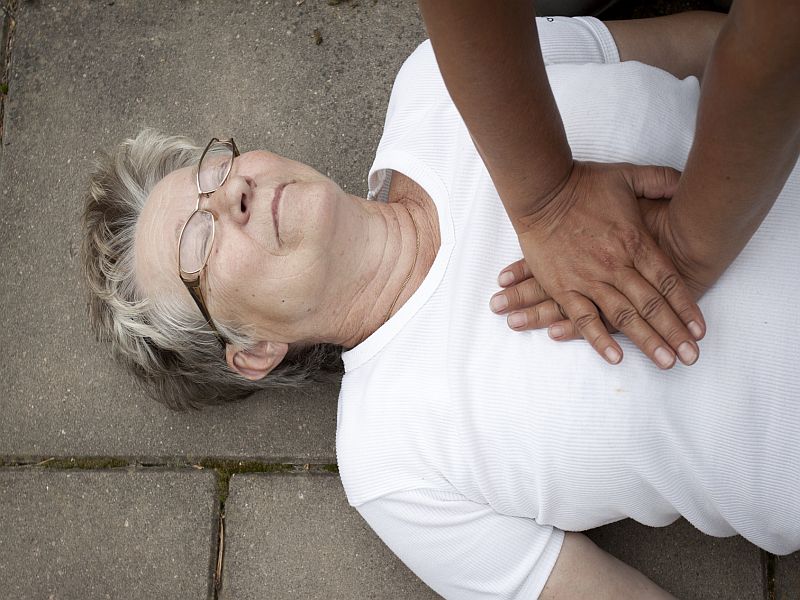Women in Cardiac Arrest Less Likely to Receive Help, Study Finds

MONDAY, May 28, 2019 (HealthDay News) -- Women who suffer a cardiac arrest in public are less likely than men to get resuscitation help from bystanders, and more likely to die, new research shows.
For the study, scientists analyzed data on more than 5,700 out-of-hospital cardiac arrests that occurred in a province of the Netherlands between 2006 and 2012. Women accounted for 28% of those cases.
Men were more likely than women to receive resuscitation attempts by bystanders, even when a bystander saw the person collapse (about 74% versus 69%, respectively).
Men were also more likely than women to survive until hospital admission (37% versus 34%, respectively) and more likely to survive from hospital admission to discharge (55% versus 37%, respectively).
Overall, women's chances of surviving to be discharged from hospital were about half that of men (12.5% versus 20%), according to the study, which was published May 22 in the European Heart Journal.
An important factor in the gender difference is that people were less likely to recognize that women who collapsed were having a cardiac arrest, leading to delays in calls for emergency services and delays in providing resuscitation, the researchers said.
"We found that the worse outcome in women is largely attributable to the fact that women had about half the chance of having a shockable initial rhythm compared to men," study leader Dr. Hanno Tan, from the University of Amsterdam, said in a journal news release.
Rates of shockable initial rhythm were 33% in women and 52% in men, according to the report.
Cardiac arrest occurs when the heart goes into an irregular rhythm and then stops beating. Death occurs within minutes unless the heart can be shocked back to a normal rhythm with a defibrillator. But without a shockable initial rhythm, defibrillation is not effective.
In addition, "people may be less aware that cardiac arrest can occur as often in women as in men, and the women themselves may not recognize the urgency of their symptoms," Tan said. "Women may have symptoms of an impending heart attack that are less easy to interpret, such as fatigue, fainting, vomiting, and neck or jaw pain, whereas men are more likely to report typical complaints such as chest pain."
The investigators also found that women and men with cardiac arrest were treated differently in the hospital. Women were less likely to be diagnosed with a heart attack (a common cause of cardiac arrest), and less likely to undergo examination of heart arteries or procedures to clear blocked heart arteries.
"Given the short window available to save the life of the patient, every minute in this early phase counts; help, if only a call to the emergency number by a lay person, is crucial. So, raising awareness through public campaigns could make a big impact on women's survival. The fact that in-hospital treatment also seems to be different is a finding that can be acted on now and may be easier to implement," Tan said.
More information
The American Heart Association has more on cardiac arrest.

The news stories provided in Health News and our Health-E News Newsletter are a service of the nationally syndicated HealthDay® news and information company. Stories refer to national trends and breaking health news, and are not necessarily indicative of or always supported by our facility and providers. This information is provided for informational and educational purposes only, and is not intended to be a substitute for medical advice, diagnosis, or treatment.

